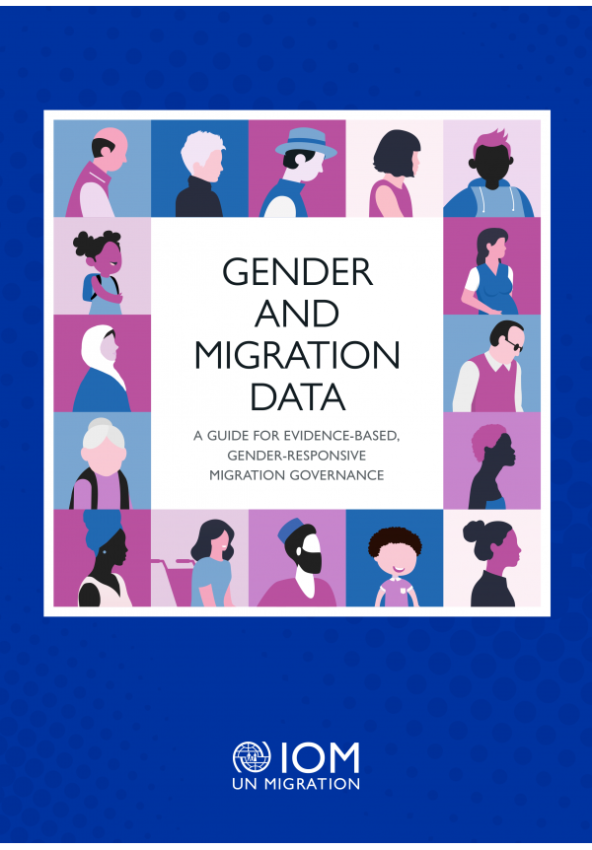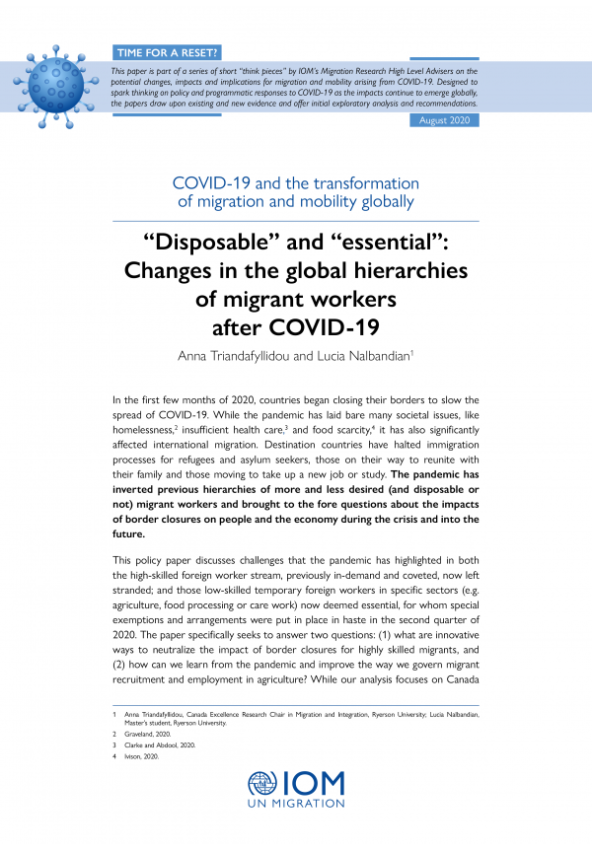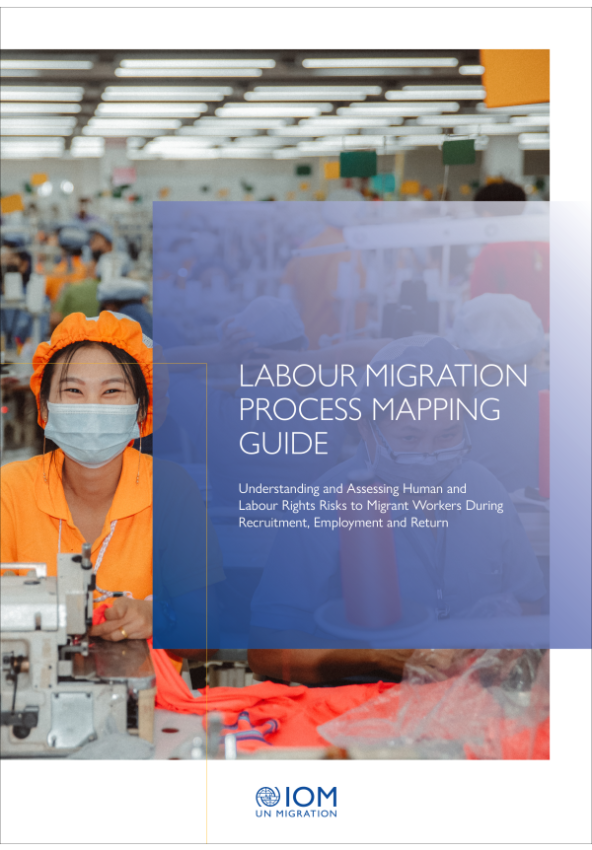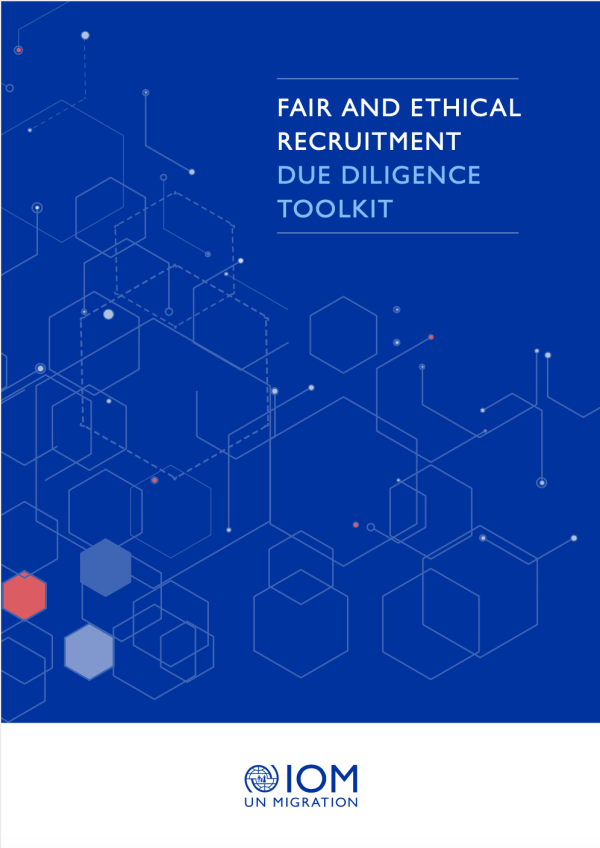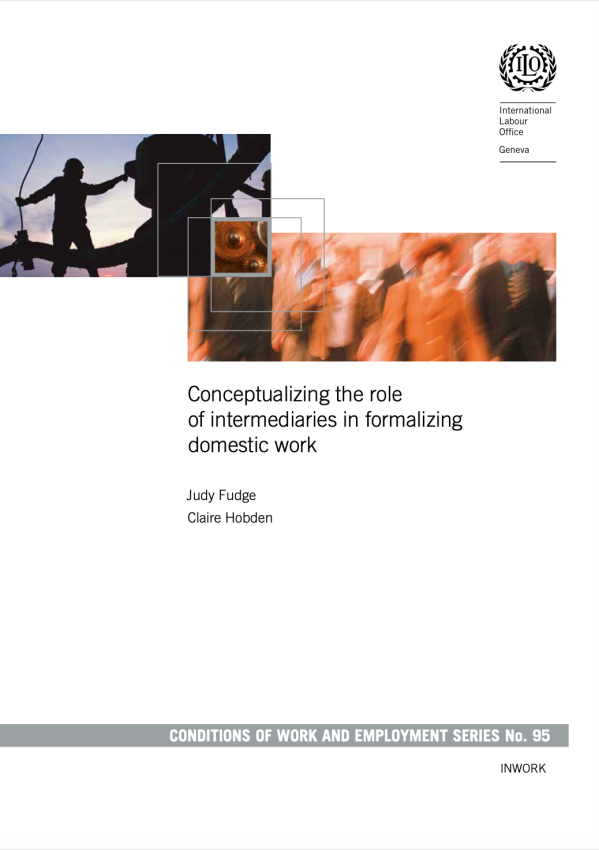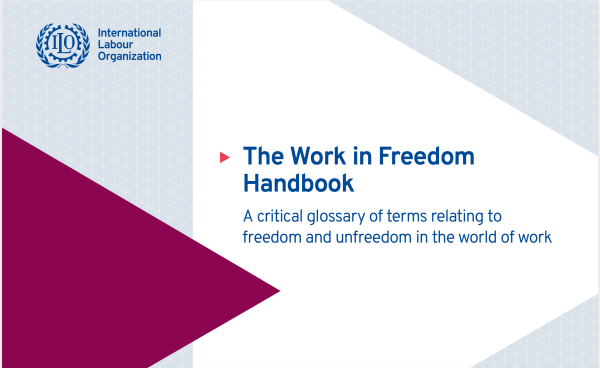Gender and Migration Data: A guide for evidence-based, gender-responsive migration governance
The purpose of this note is to provide concrete guidance to policymakers, national statistical offices (NSOs) and practitioners on why it is important to promote gender-responsiveness when collecting, producing, using, analysing and disseminating migration data for policy – and how. Gender and diversity analysis is one tool that policymakers, NSOs and practitioners can use to identify needs and address policy shortcomings as part of a gender analysis framework.
This guidance note aims to address the migration data gaps in a manner relevant to all stakeholders, and promotes a whole-of-society approach. It is also meant to help operationalize IOM’s Migration Data Strategy and includes recommendations on enhancing gender indicators and gender-based methods in data production, protection, dissemination and use. The note provides succinct information on the extent to which gender is captured through macrolevel global data sets, along with a discussion of key issues relevant to gender and migration data.
The Guide is organized into three main sections: Section 1 presents the background on the rationale and the main goals of the Guide. Section 2 provides an overview of the international context and the state of the art in gender and migration data, and Section 3 offers guidelines for action at the national (and local) level to strengthen migration data work from a gender perspective.
Type of document :
Country/Region :
Year of publication :
Theme : , ,
How migration is a gender equality issue
Explore this interactive explainer produced by UN Women on women migrants and discover 9 impacts of migration on gender:
- 1. Women migrant workers
- 2. Migrant domestic workers
- 3. Social protection
- 4. Remittances
- 5. Sexual and gender-based violence
- 6. LGBTIQ+ migrants
- 7. Human trafficking and smuggling
- 8. Covid-19
- 9. Access to information
Click here to discover the explainer.
Type of document :
Country/Region :
Year of publication :
Theme : , ,
Covid-19 and the transformation of migration and mobility globally - “Disposable” and “essential”: Changes in the global hierarchies of migrant workers after COVID-19
In this paper, Anna Triandafyllidou and Lucia Nalbandian explore how the pandemic has inverted previous hierarchies of more and less desired migrant workers. The paper considers two groups of migrant workers – previously in-demand high-skilled migrant workers and low-skilled temporary migrant workers in sectors now deemed essential – and asks two key questions: 1.) what are innovative ways to neutralize the impact of border closures for highly skilled migrants, and 2.) how can we learn from the pandemic and improve the way that migrant recruitment and employment in agriculture is governed?
This paper is part of a series of short “think pieces” by IOM’s Migration Research and Publishing High-Level Advisers on the potential changes, impacts and implications for migration and mobility arising from COVID-19. Designed to spark thinking on policy and programmatic responses to COVID-19 as its impacts continue to emerge globally, the papers draw upon existing and new evidence and offer initial exploratory analysis and recommendations.
Type of document :
Country/Region :
Year of publication :
Theme :
Labour Migration Process Mapping Guide: Understanding and Assessing Human and Labour Rights Risks to Migrant Workers During Recruitment, Employment and Return
The Labour Migration Process Mapping Guide aims to help business enterprises identify, mitigate, and address human and labour rights risks faced by migrant workers in global supply chains. It provides step-by-step instructions on how to retrace the steps that migrant workers take from their communities of origin to their workplaces in destinations, and determine the effectiveness of existing recruitment management systems to prevent and address forced labour risks.
Designed primarily for business enterprises with complex international supply chains where migrant workers are present, the Guide builds on the United Nations Guiding Principles on Business and Human Rights (UNGP) and relevant international human rights, labour standards and frameworks on responsible business conduct.
Notably, the Guide was a collaborative effort developed in consultation with governments, civil society, migrant workers and the private sector, as well as by the collection of good practices by employers, multinational enterprises and labour recruiters.
Three supporting tools, which include effective interview techniques and key considerations to ensure migrant worker safety and well-being, are also attached in the Guide. They are:
- Migrant Worker Interview Tool
- Employer Management Interview Tool
- Labour Recruiter Management Interview Tool
Type of document :
Country/Region :
Year of publication :
Theme : ,
Fair and Ethical Recruitment Due Diligence Toolkit by IOM
The International Organization for Migration (IOM) Fair and Ethical Recruitment Due Diligence Toolkit was developed to support business enterprises in fulfilling their responsibility to respect human rights in the context of international recruitment. It provides practical tools that enterprises can use to conduct comprehensive due diligence in line with the UN Guiding Principles on Business and Human Rights (UNGPs), the OECD Due Diligence Guidance for Responsible Business Practice, and IOM’s Migrant Worker Guidelines (MWGs). It can be used by enterprises to develop or strengthen due diligence processes in directly recruiting and managing business relationships with labour recruiters and private employment agencies that place migrant workers.
The tools within the Toolkit contain detailed guidelines and practical recommendations on how the due diligence processes described in the UNGPs and MWGs can be operationalized. The tools include interactive features that will direct users to the next due diligence process or the corresponding actions that are recommended for them to take. Enterprises may directly use or edit the tools to adapt to the unique nature of their operations and business relationships.
Tools to operationalize fair and ethical recruitment due diligence:
- 1. Embedding fair and ethical recruitment principles into policies and management systems
- 2. Identifying and assessing adverse human and labour rights impacts on migrant workers
- 3. Preventing and mitigating adverse human and labour rights impacts on migrant workers
- Corrective Action Plan Template (linked to the Self-assessment Checklist)
- Training Management Tool
- Pre-departure Orientation Checklist
- Post-arrival Orientation Template
- 4. Tracking implementation and results
- 5. Communicating how adverse impacts are addressed
- 6. Providing access to remedy
Access the full Toolkit here.
For questions, please email iom.dd.support@iom.int.
Type of document :
Country/Region :
Year of publication :
Theme : , , ,
IOM Launches Fair and Ethical Recruitment Due Diligence Toolkit to Support Businesses and Protect Migrant Workers
Posted at November 30th 2022 12:00 AM | Updated as of November 30th 2022 12:00 AM
Region/Country : ,
|Themes : , , , ,
ITUC Policy Brief: a new social contract for migrant workers
Decent Work deficits, xenophobia, racism and discrimination, conflicts, insufficient mitigation and adaptation to Climate Change mean many people have no choice but to accept substandard employment or undignified working conditions.
A New Social Contract is more urgent than ever to create more inclusive societies and economies, where migrants and their families can work and live with dignity. Workers call for a rights-based governance of migration that is designed, implemented and monitored through social dialogue and with international labour standards – such as freedom of association and collective bargaining rights – at the forefront.
Type of document :
Country/Region :
Year of publication :
Theme : , , , , , ,
Conceptualizing the role of intermediaries in formalizing domestic work
Domestic workers have long provided a range of services for families from cleaning and cooking to caring for children, the elderly and disabled, to driving household members and tending gardens. Despite the crucial services they provide, in many countries, domestic work is characterised by a high incidence of informal arrangements and contributes significantly to informality especially among women. The level of organization of the domestic work sector varies dramatically from country to country. In some countries, domestic workers are hired informally, by word of mouth, through social networks. In other countries, intermediaries – such as agencies, digital platforms, coops and others – play a role in recruiting, placing, and employing domestic workers. As the role of these intermediaries increases, questions arise about the impact intermediaries have on formalizing domestic work and providing decent work for domestic workers.
Type of document :
Country/Region :
Year of publication :
Theme : , , ,
Frequently asked questions by migrant garment workers in qualified industrial zones
This handbook is a compilation of the frequently asked questions posed by migrant workers in qualified industrial zones (QIZs) on their employment conditions, employer–employee relationships, and their rights and entitlements while working in Jordan as migrant garment workers.
Type of document :
Country/Region : , ,
Year of publication :
Theme : , ,
The Work in Freedom Handbook: A critical glossary of terms relating to freedom and unfreedom in the world of work
The purpose of this critical glossary is to deconstruct some of these commonly used concepts related forced labour, modern slavery and human trafficking in order to flag their blind spots, merits and other characteristics.
Most of us would agree that we should take action against forced labour, modern slavery and human trafficking. The Sustainable Development Goals (SDGs) refer to eradicating forced labour and ending modern slavery and human trafficking (SDG Target 8.7). However, each one of these conceptual constructs implies a different way of seeing the world, a different history of understanding and a very different framework of action.
Type of document :
Country/Region : ,
Year of publication :
Theme : , ,
Subscribe to the Fair Recruitment Initiative Newsletter
Sign up to receive news delivered to your inbox.

